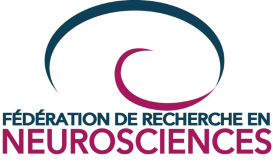events, seminars
May 24th, 2024 – Robert Brownstone (UCL Queen Square Institute of Neurology) – The language of movement: insights gained from studying dystonia
A key role of central nervous systems is to drive the musculoskeletal system to move. Hence, a large proportion of the mammalian nervous system spread across diverse regions is used to drive movement. In humans, diseases or injuries to any… Continue reading
events, seminars
May 17th, 2024 – Mayank Mehta (Center for Physics of Life, UCLA) – Hippocampus 2.0
The hippocampus is implicated in many learning and memory disorders including Alzheimer’s. Dozens of drugs have cured these in mice but failed in humans. Hippocampal neurons in rodents show robust spatial selectivity. Hence, the standard test of hippocampal function in mice is the… Continue reading
events, seminars
April 26th, 2024 – Mario Buenrostro Jáuregui (Laboratory of Neuroscience, Universidad Iberoamericana, Mexico) – Obesity and food addiction in animals and humans : the environment as the primary mediator
Obesity and food addiction are current issues in the Western world. While the problem may seem straightforward in terms of energy consumption, the complexity of interactions among various factors, including brain, hormonal, energetic, motivational, social, and environmental mechanisms, makes it… Continue reading
events, seminars
March 22nd, 2024 – Elisabeth Traiffort (Maladies et Hormones du Système Nerveux, Université Paris-Saclay)- Androgens show sex-dependent differences in myelin regeneration of the central nervous system
Multiple sclerosis is an auto-immune, demyelinating and neurodegenerative pathology of the central nervous system (CNS). The early phase of the disease mostly corresponds to a relapsing-remitting form with a succession of demyelinating events, each followed by spontaneous myelin regeneration. Over… Continue reading
events, seminars
February 9th, 2024 – Stéphanie Baulac (ICM, Paris) – Brain mosaicism in epileptogenic cortical malformations
Focal Cortical Dysplasia (FCD) is the most common focal cortical malformation leading to childhood focal epilepsy that undergo epilepsy surgery. In recent years, we and others have shown that FCD type II is caused by mosaic mutations in genes within the PI3K-AKT-mTOR-signaling pathway. Hyperactivation… Continue reading
events, seminars
January 19th, 2024 – Nicolas Renier (Laboratoire de Plasticité structurale, ICM, Paris) – The developing post-natal cerebral vasculature
The brain is densely perfused by the vascular network, which provides nutrients and oxygen to support neuronal function. The architecture of the cerebral vasculature addresses specific constrains of the neural tissues, including the near absence of energy storage and very… Continue reading
events, seminars
January 12th, 2024 – Tatiana Novikova (Physique des Interfaces et Couches minces, Ecole polytechnique – Palaiseau) – Imaging Müller polarimetry for probing biological tissue at macro- and microscale
It has been proven that polarized light is extremely sensitive to tissue microstructure. Early pathological changes in tissues may not be visible with a naked eye. This contrast, however, can be increased in polarized light images, because these changes alter… Continue reading
events, seminars
November 10th, 2023 – Laurent Cohen (Département de Neurologie, Hôpital de la Salpêtrière and ICM – Paris) – The reading brain upside down and inside out
The ventral occipitotemporal (VOT) cortex plays a pivotal role in the visual recognition of various types of items, including objects, faces, places, and written words. The role of the left VOT in reading has been recognized since the 19th century… Continue reading
events, seminars
November 3rd, 2023 – Jean-François Brunet (IBENS – ENS)- Genetic architecture of the autonomic nervous system
A general structure for the autonomic nervous system, divided into sympathetic and parasympathetic arms, was codified by John Newport Langley at the beginning of the XXth century. We propose a revision of this scheme based on neuron types. The “sacral… Continue reading
events, seminars
October 6th, 2023 – Sarah Genon (Research Center Jülich, Germany) – From the complexity of brain organization to challenges in brain-behaviour mapping
Understanding brain-behaviour relationships in humans remains as one of the most complex scientific question. For a few decades, data offered by neuroimaging approaches, in particular MRI, have been under intense scientific investigations and methodological questioning. These have highlighted continuous challenges… Continue reading


